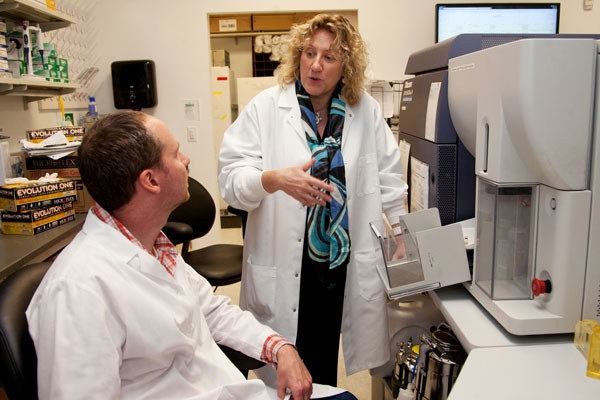Researchers Discover Leukemia's Role in Inhibiting Immune Cell Development
Story Highlights Cross-County Collaboration Between UCSF, Harvard that Led to Discovery

Emmanuelle Passegué, PhD, right, speaks with a colleague in her lab at UCSF's Parnassus campus.
UCSF’s Emmanuelle Passegué, PhD, an expert on how the blood system arises during development, recently led a study in which researchers discovered how leukemia, a blood cancer, can gain a stronghold in bone marrow and inhibit the development of normal immune cells.
Passegué, a researcher with the UCSF Eli and Edythe Broad Center of Regeneration Medicine and Stem Cell Research, and colleagues – including long-term collaborator Amy Wagers, PhD, a professor at Harvard University’s Department of Stem Cell and Regenerative Biology – found that leukemia cells cause other nearby cells to abnormally deposit collagen and inflammatory proteins, leading to fibrosis – or scarring – of the bone marrow cavity.
“They remodel the microenvironment so that it is basically callous, kicking the normal stem cells out of the bone marrow and encouraging the production of even more leukemic cells,” Passegué says.
While Passegué’s discoveries are fundamental, they also point to new strategies for fighting cancer.
Read more about the study and the cross-country collaboration of Passegué and Wagers in the Harvard Gazette.
Learn more about Passegué's work on her laboratory website.
Photo by Cindy Chew